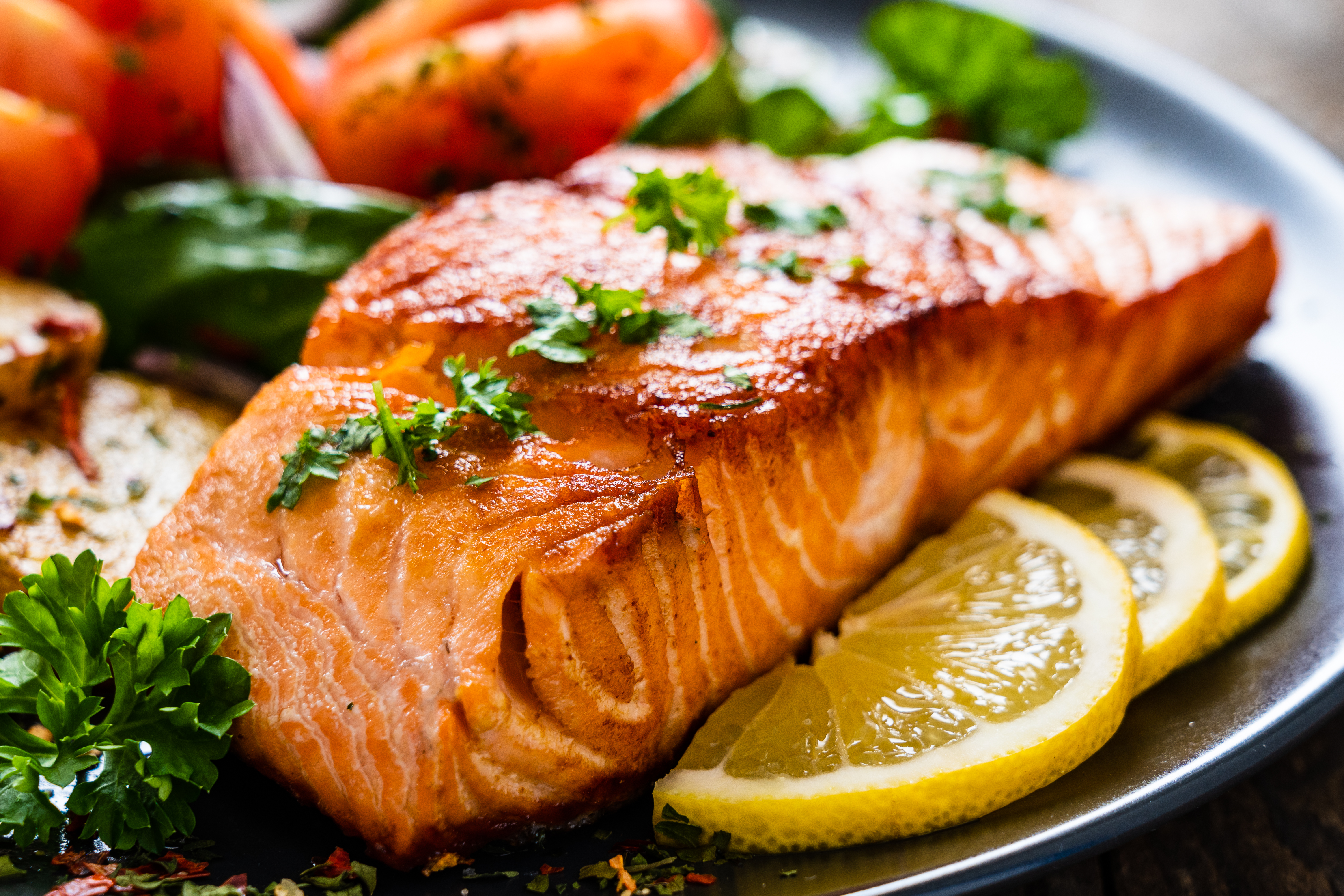What’s more, a study this week warned rates of melanoma, the deadliest skin cancer are at an all-time high in the UK and projected to hit 20,800 this year.
A staggering 17,000 of those are preventable, along with 38 per cent of all cancer cases, says Cancer Research UK.
It means how we choose to live can impact our chances of developing the disease.
Former NHS GP Haroon Hamid, co-founder and lead clinician at wellness and aesthetics clinic Haus of Skin, says the risk of a cancer diagnosis is a “combination of environmental, lifestyle and genetic factors as well as a degree of luck, or lack of luck”.
He tells Sun on Sunday Health: “There are, however, things we can do to reduce the chances of cancer which we can all follow and abide by.
“It is important to educate and inform about how it can be prevented and combatted.”
Concerned about any symptoms you are experiencing?
Dr Hamid warns: “Don’t ignore symptoms — seek a consultation, discuss concerns and have appropriate testing.”
GO FISHING
ALTHOUGH it is not to everyone’s liking, fish is a food must-have.
The Mediterranean diet, which emphasises fish, has long been touted as the “best in the world”, reducing the risk of several diseases.
Dr Hamid says: “Many of the Blue Zones in the world — pockets of populations that have the highest proportion of centanarians — often follow a Mediterranean diet rich in fish and food high in omega-3.
“Regular fish, such as salmon, trout or cod, can be eaten a couple of times per week.
“Oily fish like mackerel, sardines and tuna should be included in your diet at least once or twice a week due to their high omega-3 fatty acid content, which has been associated with reduced cancer risk.”
Vegans and vegetarians can get omega-3 from walnuts, pumpkin seeds and soya-based products.
SUN SURE
EXPOSURE to UV rays is the key cause of skin cancer, which means most melanoma cases in the UK are preventable.
Wear sun protection throughout the year and reapply multiple times throughout the day.
Dr Hamid says: “UV risk and damage can occur from cloudy days as harmful rays will penetrate through clouds.”
Anyone can get skin cancer, but those who are pale, have fair hair, freckles or medical skin issues should take extra care.
Use the ABCDE checklist for monitoring changes in moles that can become cancerous; (A) asymmetrical shape, (B) irregular or jagged borders, (C) mix of colours, (D) diameter — normal moles tend to be smaller than 6mm wide, (E) evolving — is a mole becoming itchy, bleeding, or crusty?
FULL OF FIBRE
MOST of us don’t eat the recommended 30g of fibre per day.
Dr Hamid says: “High-fibre diets have been linked to a reduced risk of colorectal cancer.
“Swapping white grains for whole grains is a smart choice for cancer prevention and overall health.”
Other simple fibre boosters include adding chia seeds to your breakfast, snacking on popcorn and nuts, cooking with chickpeas, beans and lentils and leaving the skin on potatoes.
BOOZE-FREE DAYS
QUITTING alcohol entirely would be ideal for optimal health, but even cutting down is beneficial.
Booze is linked to seven types of cancer, including breast, mouth and bowel, according to CRUK.
Factor in alcohol-free days every week and agree to these with your partner or family so you are all on the same page.
Over time, try to increase the number of days you go booze-free.
Dr Hamid says: “When you’re out, go for single measures or add ice to your drink to water it down and make it last longer.”
The apps Drink Less, Reframe and NHS Drink Free Days can help you cut down.
50/50 MEAT
PROCESSED meats such as bacon, sausage, and deli meats have been linked to an increased risk of certain cancers, particularly bowel.
Dr Hamid says: “You can swap processed meats for leaner protein sources like poultry, tofu or legumes.
“Additionally, reducing consumption of red meat, especially if it’s high in saturated fats, can help.”
When making something with mince, you could swap half the meat for lentils, which you can buy pre-cooked in tins for less than £1. Or try chicken sausages over pork.
PRIORITISE SLEEP
WHILE the evidence is not conclusive, some studies link poor sleep to cancer.
What is more apparent is that it could lead to several health conditions, including obesity and type 2 diabetes, which are risk factors for cancer.
Dr Hamid says: “Maintaining a consistent sleep schedule is crucial for overall health.
“Aim for seven to nine hours of quality sleep per night.
“Apps like Headspace or Calm provide relaxation techniques and guided meditations that may aid sleep.”
He recommends aligning the times you head to bed, and awaken, with the natural body clock.
This means exposing yourself to daylight as soon as you wake up, and reducing light exposure in the evening, as signals to the brain it’s time to get some kip.
BERRY NICE
DITCH the biscuits for a bowl of mixed berries next time you fancy a sweet snack.
Dr Hamid says: “Berries, such as blueberries, strawberries, and raspberries, are particularly healthy due to their high levels of antioxidants and anti-inflammatory properties.
“However, aiming for a colourful plate is a great strategy overall.”
CRUK states that although fruit and vegetables have a small protective effect against cancer, they do still contribute, so it is worth getting a minimum of five a day.
Some find frozen vegetables are helpful because they don’t go to waste but contain plenty of nutrients.
STUB IT OUT
SMOKING is a huge contributor to cancer including mouth, throat, stomach, colon, rectum, liver, pancreas, lung and several others too.
In fact, CRUK states that smoking is the biggest cause of cancer in the UK.
If you smoke, then quitting is one of the best things you can do to help avoid the disease.
However, Dr Hamid warns against vaping as an alternative, saying: “It can be harmful and more addictive.
“Traditional smoking cessation services are still available and worth a try.”
The free NHS Quit Smoking app offers a 28-day programme and there are free NHS-funded Stop Smoking Services all over the country, delivered by trained advisors. Visit the NHS website for details.
SAFE SEX
OLDER people need to keep on top of their sexual health just as much as the youngsters, as figures show sexually transmitted infections are rising in over-50s.
Certain strains of hepatitis B and C viruses increase the risk of particular cancers, as can the human papillomavirus (which is not an STI, but passed sexually).
This includes cervical, anal, and liver cancers. Women are invited to a smear test every year to check for HPV.
Dr Hamid says: “It’s important for sexually active individuals to get regular STI tests, ideally at least once a year or more.
“Always practise safe sex and use protection to reduce the risk of STIs and potential long-term consequences, including cancer.”



